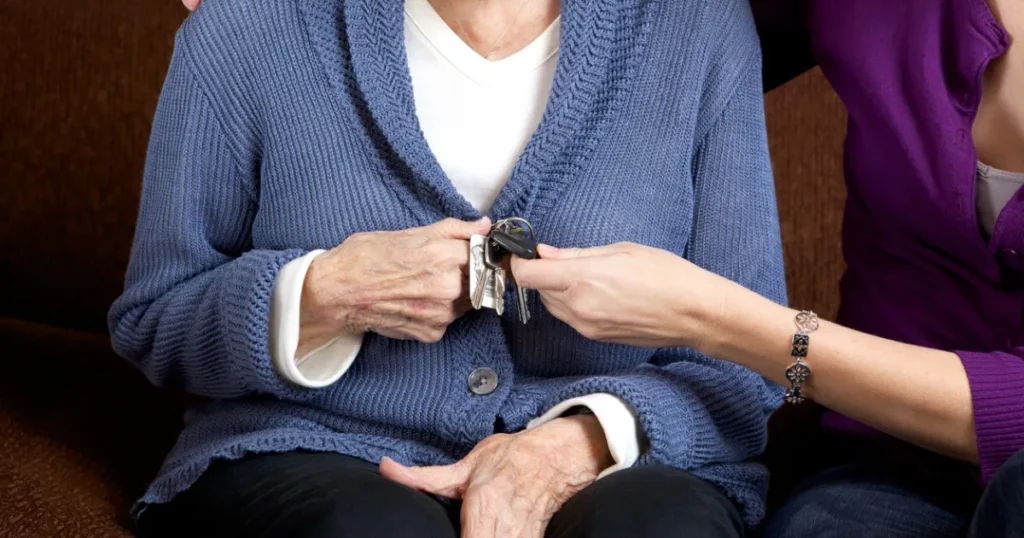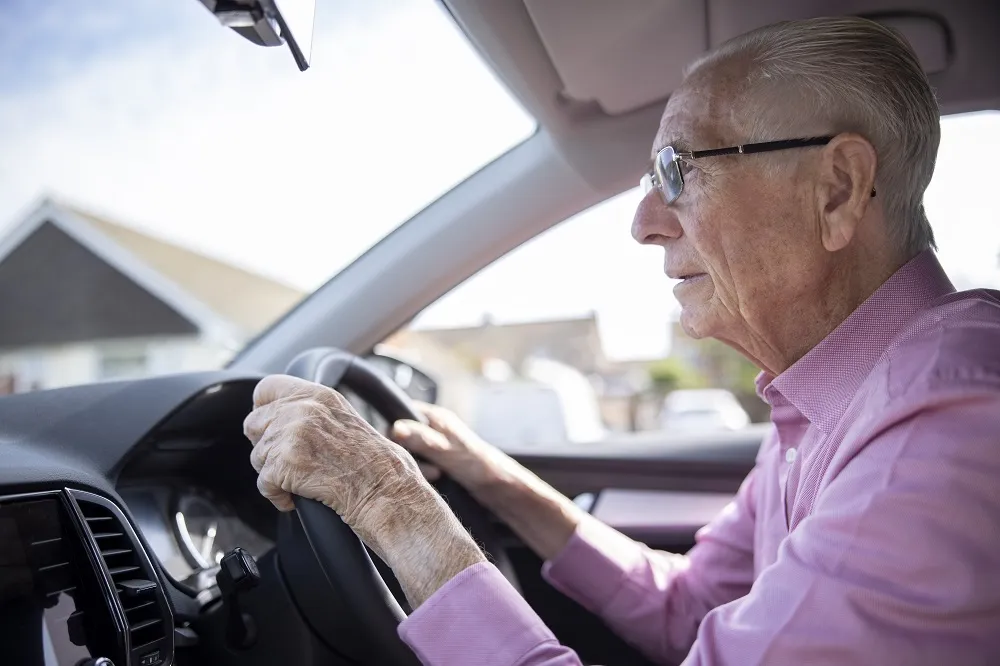After 50+ years of driving, it can be difficult for seniors to relinquish their driving privileges. For safety’s sake, however, you may find it necessary to request that a loved one stop driving. But, when should seniors stop driving?
Although driving gives seniors greater freedom and independence, it’s not worth the risk of causing an accident, especially when seniors show signs of unsafe driving. The following tips can make it easier to help aging relatives give up their car keys.
Understanding the Impact of Aging on Driving Ability
As individuals age, various physical and cognitive changes can affect their driving ability. Diminished eyesight, hearing loss, slower reflexes, and reduced flexibility can make it more challenging to drive safely.
Medications commonly taken by seniors can also impact driving skills, causing drowsiness or decreased alertness. Recognizing these changes and understanding their impact on driving can help families start conversations about alternative transportation solutions before safety becomes an issue.
When Should Seniors Stop Driving? Here are the Signs of Unsafe Driving in Seniors:
When riding with older drivers, it’s important family and friends pay attention to their driving habits. If seniors show signs of driving poorly or erratically, it could be time for them to relinquish their license before they cause an accident. Seniors with medical conditions such as dementia or Alzheimer’s may experience symptoms of memory loss, confusion, or disorientation while driving, putting them at greater risk of accidents. The following are some signs of unsafe driving to look out for when considering taking away the car keys of an elderly driver.
- Difficulty working the pedals or confusing the gas pedal with the brakes
- Weaving or straddling lanes
- Turning too sharply and hitting or going over curbs
- Ignoring stop signs or misinterpreting traffic signals at intersections
- Driving too slow or too fast due to a lack of judgment in determining the flow of traffic
- Getting easily distracted, disoriented, or lost when driving
- Forgetting routes to familiar places
- Counting on a “copilot” to drive safely

Helping Seniors Adjust to a Non-Driving Lifestyle
Talk with your loved one openly and honestly about your concerns for safety on the road. If your loved one shows signs of early dementia or Alzheimer’s, you can ask their physician to support your decision to limit (or suspend) driving privileges.
Discuss alternate options for transportation so your loved one can continue living the lifestyle they desire. Encourage your loved one to put safety first and make the wise, responsible choice to stop driving. Volunteer to drive aging loved ones to doctor’s appointments, shopping trips, etc., whenever possible, to make it easier for them to get where they want to go. By planning, you can be better prepared for the day your loved one can no longer drive.
Encouraging Open Dialogue and Support
Maintaining open communication is one of the most crucial aspects of helping seniors transition from driving. Having a respectful and understanding dialogue about the reasons for no longer driving can help alleviate any feelings of loss or frustration. Here’s how you can facilitate this conversation:
- Choose the Right Time and Place: Find a quiet, comfortable setting to discuss the matter, ensuring the senior feels safe and respected.
- Express Concern, Not Criticism: Frame the conversation around safety and well-being rather than focusing on limitations. Make it clear that the concern comes from a place of love and care.
- Include Them in the Decision-Making Process: Engage your loved one in exploring alternatives and making decisions about their transportation. This involvement can help them feel more in control of their situation.
- Offer Reassurance: Emphasize that giving up driving does not mean losing independence. With the right support and resources, they can continue to enjoy their activities and maintain their social connections.
Creating a Plan for Transition
Transitioning away from driving doesn’t have to mean losing independence. With a thoughtful plan in place, seniors can maintain an active and fulfilling lifestyle. Here are steps to create a smooth transition:
- Assess Transportation Needs: Determine the most frequent destinations of the senior, such as grocery stores, medical appointments, social events, and family gatherings.
- Explore Community Resources: Many communities offer transportation services designed specifically for seniors. These can range from discounted taxi services to senior shuttles.
- Leverage Technology: Introduce your loved one to rideshare apps like Uber and Lyft. Many seniors find these services convenient and easy to use once they get the hang of it.
- Encourage Social Engagement: Staying active and socially engaged without driving is possible. Help your loved one find local clubs, classes, or groups that provide transportation for members.

Make Safety a Priority
When it comes to driving, safety should be your priority. Under most circumstances, it’s much safer for elderly seniors to be driven by family or friends, take a taxi, or use senior transport than try to keep up with the rigors of driving. By ensuring your loved one has reliable transportation when needed, you can make it easier for them to transition to a non-driving lifestyle.
Adjusting to life without driving is a significant change for many seniors, but with thoughtful planning, open dialogue, and the use of modern resources, it can be a smooth transition. At Sunny Days In-Home Care Carolinas, we understand the importance of maintaining independence and mobility for seniors. Our dedicated team is here to provide support every step of the way, from offering transportation services to assisting with technology that makes life easier and more enjoyable.
Contact us to learn more about how we can support you or your loved one during this transition, ensuring a lifestyle that is both safe and fulfilling.


